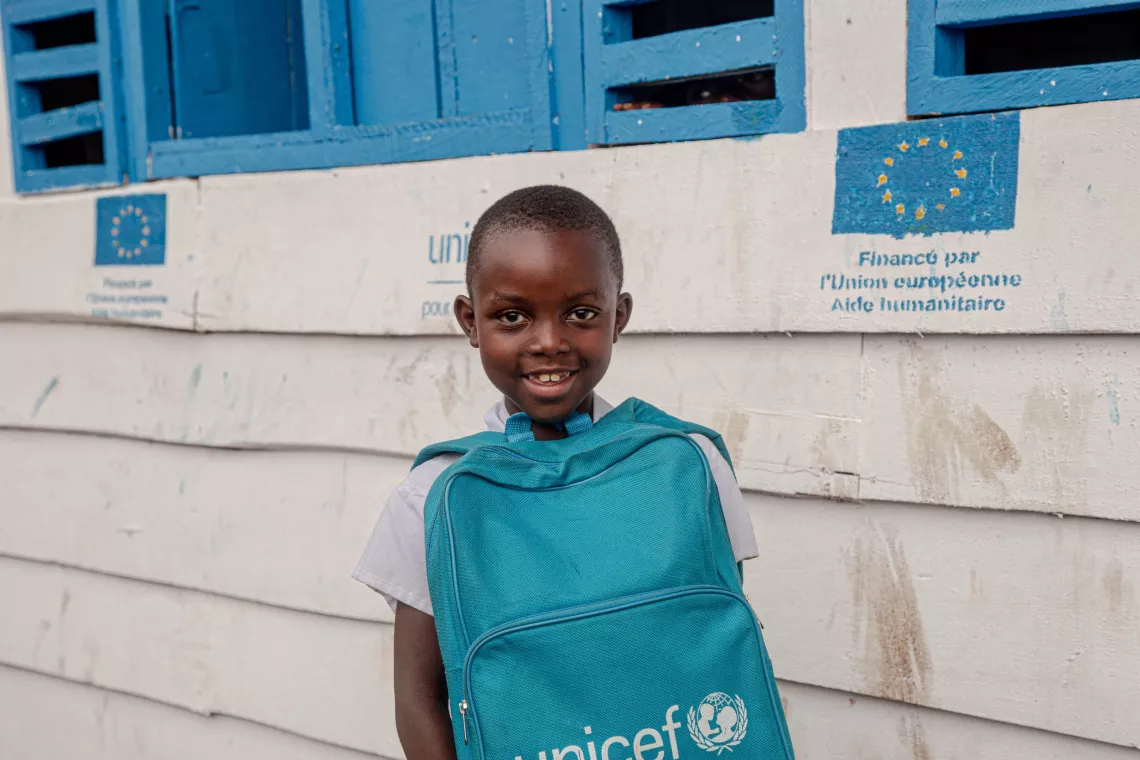Although she was living in a school, she was unable to attend classes.
“I wasn’t able to study last year because there was no place for me” she says, adding that she had been one of the best pupils in her previous school. “I could play with the other children during their breaks but I couldn’t attend lessons with them afterwards.”
For a long time, Hélène harboured one wish: to return to school as soon as possible.
As part of their work on the ground in eastern DRC, UNICEF and partners are setting up temporary learning spaces to ensure children don’t miss out on education or put at risk of early marriage, sexual abuse, or economic exploitation as a consequence of being out of school.
With the support of the European Commission’s Civil Protection and Humanitarian Aid department (ECHO) and the Central Emergency Response Fund (CERF), UNICEF was able to construct three temporary learning spaces within the Bujari compound.

The classrooms were built in just a few weeks with the help of local communities, using wood and other readily available materials. The new spaces have allowed several dozen more pupils to enrol, including Hélène.
“My dream is to become an engineer and build schools so that, like me, every child has access to education,” Hélène says.
The temporary classes not only enable displaced children to resume their studies, but also the children of families living close to the Bujari site.
As well as their academic studies, pupils are also learning new types of social skills, such as meeting and getting along with others from outside their community.
Adili and Amuli, both from different villages, have become fast friends since finding themselves in the new temporary school together.
“We’ve become best friends because we both work hard to be the best in our class,” explains Adili, who always sits next to her new friend.


“I’m happy to be going to school,” says seven-year-old Merveille, proudly showing off her new schoolbag in UNICEF’s distinctive blue. “When I’m older, I’ll be a teacher, teaching other children to read and write.”

Education helps give children a sense of normalcy amid violence and instability. UNICEF is also working with teachers in eastern DRC to train them in child protection issues and in the provision of psychosocial support. The agency also works to make sure communities know about the value of education and going to school.










